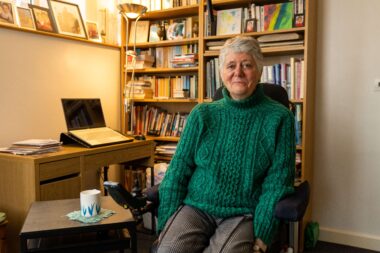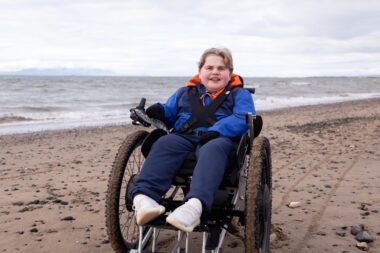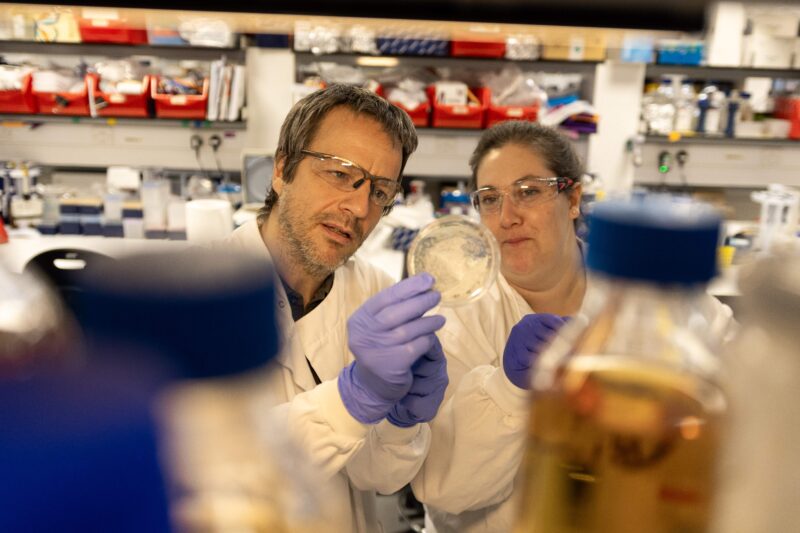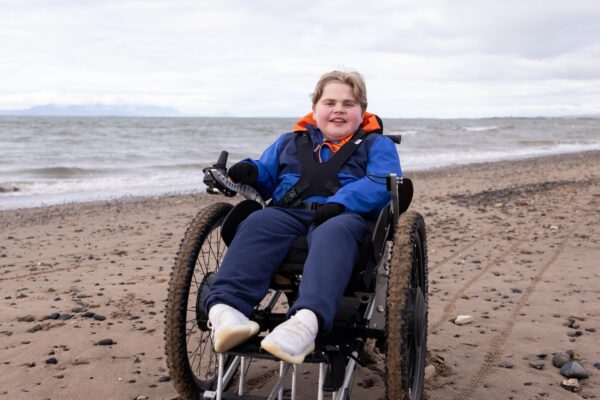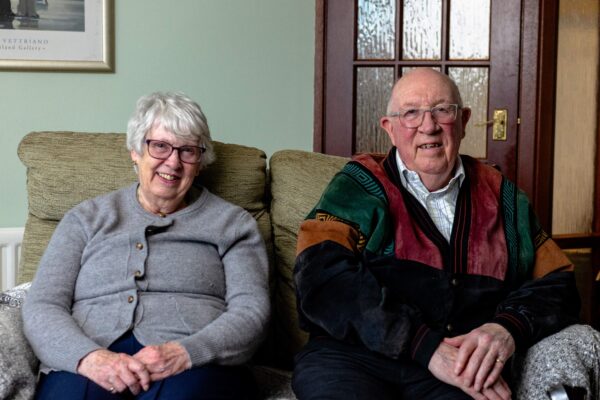“Of course I’m more restricted in what I can do, but I’m still the same person.”
Sheila Hawkins was diagnosed with fascioscapulohumeral muscular dystrophy (FSHD) when she was 31 and has been actively involved with our community for many years.
Sheila tells us why it was important for her to pledge a gift in her Will to us.
My name’s Sheila Hawkins, and I live with facioscapulohumeral muscular dystrophy, known as FSH or FSHD. I was diagnosed in 1989, when I was 31.
My sister was diagnosed first. Because it’s a genetic condition they wanted to meet the whole family. They ran various tests—but only in the areas where [my sister] Ann was weak.
Just as we were leaving I said, “Oh, is that anything to do with my weak ankles?” The doctor took one look and said, “Oh yes, you’ve definitely got the condition too.” It was a real shock.
I have physio through the Muscular Dystrophy Support Centre. It helps stretch my hip muscles and get all my organs in order. You just feel better for it.
I was a really keen commuter cyclist. I stopped cycling around 50. Around that time, I started walking with a stick, and then moved to using a walking frame. When I was 60, I fell and broke my leg—and I’ve never walked again.
The muscular dystrophy community
Being part of the muscular dystrophy community really helped me. Some of that support came directly from MDUK—the events they’ve run where I’ve met other people living with muscular dystrophy.
I really wanted to be able to drive independently. And it was actually at an MDUK meeting where I met someone else who explained her wheelchair-accessible vehicle to me. My car’s automatic, and the handbrake is electrically operated. I press a button to turn it on and off. I can now drive independently, which has a huge impact on quality of life.
Focus on what you can do, rather than what you can no longer do.
I’m still the same person. I’m still interested in the same things. It’s the culture and community that MDUK have created that’s helped and supported me.
I’m leaving a gift in my Will to MDUK
It’s really important to support MDUK. I think legacies are a great way of doing that, and that’s why I’ll leave some money to MDUK in my will.
I hope that one day, an FSHD diagnosis doesn’t have to define anyone’s story.
